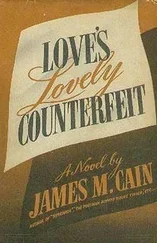He knew that within seconds his heart would race and his nerves crackle; for the moment, though, he felt the odd, stunned serenity of a condemned man. Now, using both hands to keep the pocket open, he looked inside. He turned the pocket inside out. The piece of paper was lost, there was no doubt about that. Peter would surely conduct a frantic and thorough search. Like a drunk desperate to find enough change for a drink, he would turn out all the pockets of his clothes, where he would find all those little pieces of paper that he had accumulated during his trip. “Not valid for flight.” He would rifle through the documents in his briefcase and then, with steely patience, turn them over one by one. He would slide his hands around the various plastic sleeves of his laptop case, finding errant pens and business cards. He would retrace his steps to the front desk and then to his car, where he would unfold and refold and unfold his rental car contract and open the trunk. Then, returning to his room, he would in one last frenzy strip out every article of clothing in his garment bag and search through all the pockets and every pleat and cuff. He would even look in the pockets of the shirts that were still in the plastic bag from the cleaners. Magicians did things like that, didn’t they? The card you picked would appear inside another sealed deck, or an apple?
All of this would be completely useless, he knew, but he would do it. He stared at the ceiling. He closed his eyes. He could see the printed words on the page clearly. As for the handwriting, he could remember its general look and the space it took up, but he could not picture anything specific, except the name: “Holly.”
Holly.
For its entire history, the firm of Beeche and Company, which could trace its origins to New Amsterdam, had engaged solely in one commercial activity: trading. At no time had it cultivated or mined or manufactured any good; it acted, rather, as merchant, factor, broker, financier. At its beginnings, it imported the axes that it traded for wampum, which it traded for beaver skins, which it sold for export. Later on, it bought corn and wheat from the farms of the north and sent its ships laden with them to the Caribbean, where they exchanged their cargo for sugar, rum, molasses, and indigo, which, on the ships’ return, Beeche re-exported to the east and west; sometimes, the eastbound ships, after first calling in Britain or France, traveled down to the African coast and then sailed back across the Atlantic with cargo that was human. Beeche was among the first in New York to trade commercial and government paper, and as the years passed it added the securities of banks, then of railroads, then of manufacturers, to its repertoire. By the turn of the last century the firm had grown into a large financial enterprise with thousands of employees, branches throughout the world, and a dozen divisions. Yet its basic business remained the same: trading for its own benefit and brokering the trades of others. No Beeche had touched a plow or a hammer for centuries, nor had he employed anyone who did.
Unlike its competitors, Beeche was still owned by its founding family; no partners had been invited in, nor had shares been sold to the public. Moreover, the Beeches had passed the company down roughly according to the right of primogeniture (although there had been times when women had run it—Dorothea Beeche famously made a killing in the Panic of 1819), so the ownership had remained concentrated. Since it was a private firm, no outsider could easily judge what Beeche and Company was worth, but it typically ranked at the top as an underwriter, and it was legendary for its ability to make huge bets and refuse to fold when the markets (temporarily) turned against it, so its capital must have been very substantial.
Apart from the firm, there were, of course, other sources of Beeche wealth, and their value was even harder to determine. The Beeches, for example, had acquired land continuously, and it was said that they had never sold an acre, but the extent of their holdings was unknown, as they had long since stopped using their own name in making a purchase. Then there were the collections of antiquities, paintings, sculpture, furniture, manuscripts, tapestries, books. Always patrons of American cabinetmakers and silversmiths, the Beeches also took shopping sprees in Europe that had preceded those of other Americans by a couple of generations. One of the Beeches had made a practice of providing liquidity to embarrassed maharajahs by buying their jewels; in the 1940s and 1950s, another had accepted paintings in lieu of rent from impoverished artists living in Beeche properties in lower Manhattan. Nor was it possible to say how much money the Beeches had given away. From the earliest Spastic Hospital through settlement houses on the Lower East Side to the newest program to eliminate malaria, they had exerted themselves philanthropically, usually with the right hand kept ignorant of what the left was doing.
Yet while precision might be elusive, it could be said with confidence, in a general way, that the Beeche fortune was vast.
The incumbent Beeche was named Arthur (as most of his predecessors had been). His legacy, with all its attendant powers and duties, had come to him at the age of forty. He was now fifty-three. One wet morning in June, Arthur Beeche was being driven from his house on Fifth Avenue to Beeche and Company’s headquarters on Gold Street. He had left at his usual time, four-fifteen, and at that hour the trip took ten minutes. Rory, the chauffeur, had minded Arthur since he was a little boy and, on account of his employer’s generosity and good advice, and his own shrewdness, he had acquired his own fortune. Right now he was making a big bet on volatility, as he told Arthur on the way downtown. They arrived at the Beeche Building, an enormous new edifice. The rain had made black patches and streaks on its slate cladding. Rory opened the car door for Arthur and scampered to open the door of the building. Although he was a large man, Arthur moved in a kind of shimmer, as if an invisible force were conveying him a finger’s width above the ground. “Good morning, Mr. Beeche,” said a security guard. Arthur smiled and said, “Good morning, Ignazio.” He shimmered over to his private elevator, and Ignazio pushed the button for him; the doors opened instantly. “How’s your little boy doing?” Arthur asked. “The first-grader.”
“Oh! Good, Mr. Beeche,” said Ignazio. “Very good.”
“Did he get glasses?”
“Yes, sir. It’s a big help.”
“That’s swell,” said Arthur. “But the other children don’t tease him?”
“Oh no. Maybe a little, but not so bad.”
“I’m glad to hear such a positive report,” Arthur said, entering the elevator. “See you tomorrow, Ignazio. Take care of yourself.”
“Yes, sir. You too, sir,” said Ignazio. “Don’t fight the tape!”
Arthur laughed. This was a little joke of theirs. “I’ll try not to!” he replied.
When Arthur got off on the seventy-seventh floor, a beautifully groomed woman, Miss Harrison, was there to meet him. She carried a folder full of correspondence. As they walked toward his office, he and Miss Harrison talked quietly about how Asia had closed. They passed by some empty desks, through a well-furnished anteroom, and then into Arthur’s office proper. It was large and decorated in the expensive but reserved style of a masculine upstairs sitting room in one of Arthur’s houses. There were three large paintings and several smaller ones. Arthur changed these regularly, enjoying the chance to study his pictures during his long hours at work.
He sat at his desk, which was bare of any papers. Miss Harrison placed the folder in front of him. She brought his attention to several matters. “Thank you, Miss Harrison,” he said, and she withdrew.
Читать дальше












